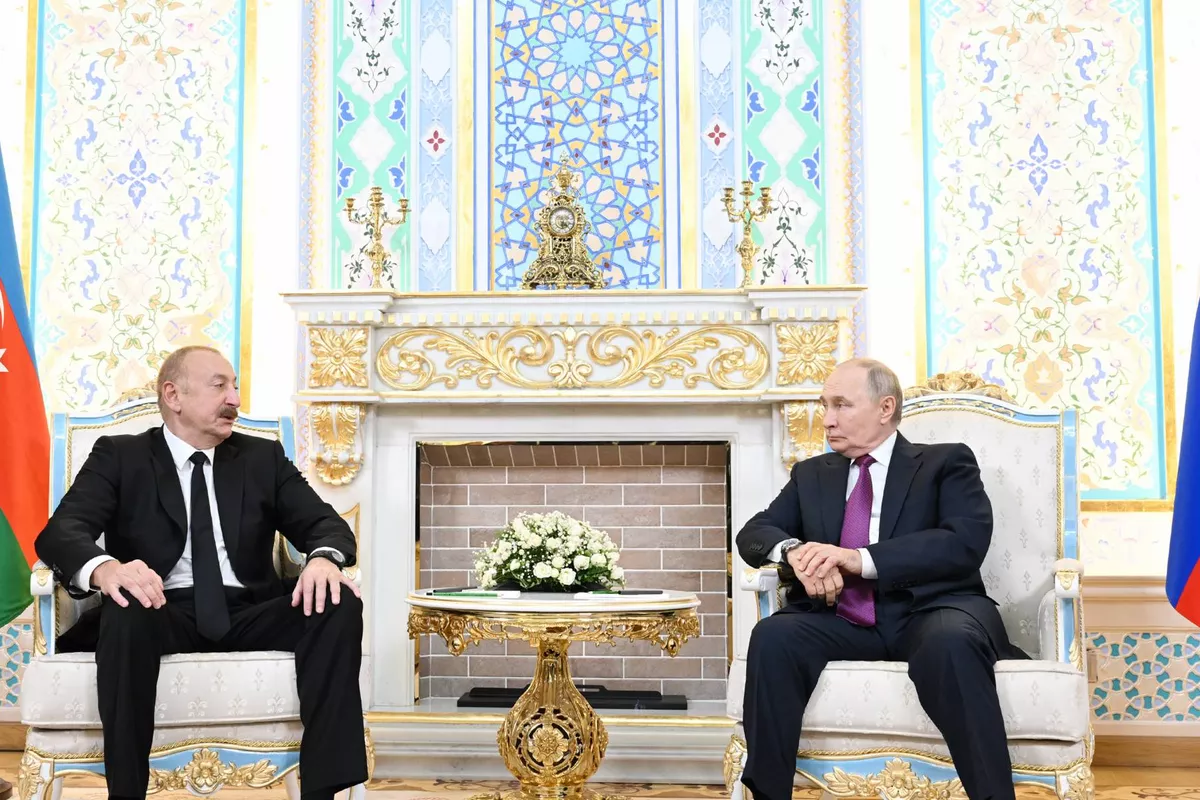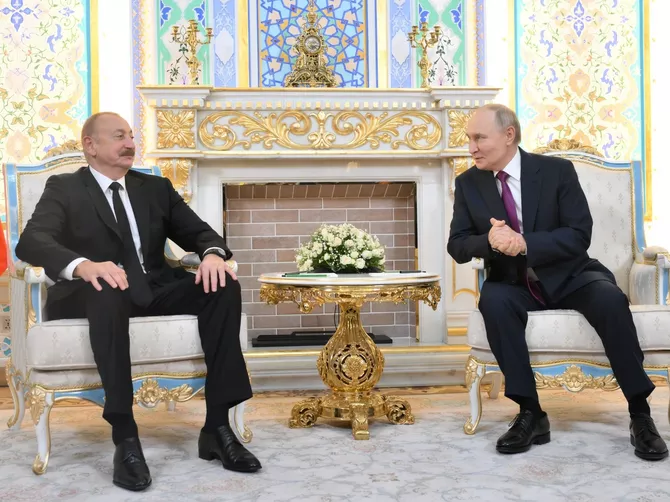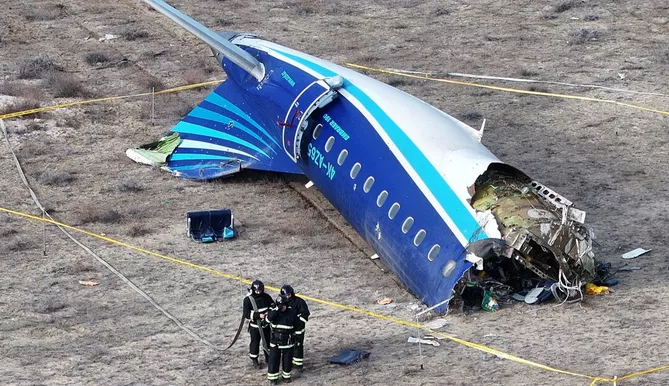
Photo credit: AZERTAC
Pragmatism, as history shows, often prevails over pride. In diplomacy, it is the art of balancing truth with necessity, and it seems that both Moscow and Baku have once again chosen reason over confrontation. The recent meeting between Presidents Ilham Aliyev and Vladimir Putin in Dushanbe was one of those rare moments when political instinct overcame mutual grievances.
The encounter was not a formality. It was a clear attempt to defuse the tension that had been steadily growing over the past year, straining political, economic, and even social ties between the two countries. Judging by the tone and the outcomes, the ice has finally begun to melt. The talks were necessary-and, more importantly, productive.
Observers quickly noted that the initiative for this meeting likely came from Moscow. The setting - the neutral ground of Dushanbe - was carefully chosen to avoid the optics of dominance or submission. A meeting in Baku or Moscow would inevitably have been interpreted as a gesture of strength or weakness. Instead, both leaders stood on equal footing, signaling mutual respect and a readiness to turn the page.

Photo: kremlin.ru
Yet the most striking part of the meeting was not its symbolism but its substance. The tragedy of the downed Azerbaijani passenger plane, a subject that had cast a dark shadow over bilateral relations, finally received acknowledgment from the Russian side. Putin’s statement that the plane was hit by Russian missiles, even with the caveat that they “exploded nearby,” was an unprecedented admission. He also announced compensation for the families of the victims-a gesture that carries not just humanitarian, but deeply political, significance.
Still, his claim that he received the full report on the incident only on the eve of the Dushanbe meeting raises questions. Could the Russian president really have remained uninformed about such a major event? Hardly. The Russian military tracks every launch, every radar blip, every aerial target in real time. If, as Putin said, there was also a Ukrainian drone in the area, the radar systems certainly detected the civilian plane as well. The suggestion that the military might have withheld this information from the president, or that the president chose not to ask, sounds implausible at best.
Regardless of how much Moscow knew and when, the fact remains: Russia publicly accepted responsibility. This is not typical of today’s Kremlin. It suggests a deliberate strategic decision-to de-escalate and re-engage with Azerbaijan, rather than let the incident define future relations.
Baku, for its part, responded with restraint and pragmatism. Soon after the meeting, Azerbaijan released detained representatives of Russia’s RT network, while Moscow freed several Azerbaijani citizens previously held in custody. These steps, while discreet, carried clear political signals: both sides are ready to move past the confrontation.
But why now? Why did Moscow, so rarely inclined to concede, take this step? The answer lies in the shifting geopolitical balance of the region. Azerbaijan has significantly expanded its diplomatic and economic ties with the West, particularly with the United States, and has positioned itself as a vital hub in new energy and transport corridors. From the Caspian to the Mediterranean, from Central Asia to Europe, Baku’s influence is growing. Russia cannot afford to be sidelined.

Reuters
Moreover, Moscow understands that its strategic role in the Caspian Basin and the broader Middle East - from Iran to Afghanistan - depends on maintaining stable relations with Azerbaijan. In this context, acknowledging responsibility for the plane incident is not an act of weakness but a calculated investment in future cooperation.
There is also the unspoken fear of isolation. The Kremlin is watching new alignments form - Azerbaijan’s growing ties with Washington, Washington’s engagement with Yerevan, and the evolving architecture of regional connectivity. Energy, trade, and transport routes are being redrawn, and Moscow knows it must secure its place in this new reality.
Perhaps that is why Putin chose humility over hubris. His acknowledgment may have been tactical, but it opened a door that had long been stuck. Azerbaijan, for its part, has every reason to walk through it - not out of sentimentality, but out of the same realism that has long guided its foreign policy.
In the end, both sides seem to have remembered an old truth: a bad peace is still better than a good quarrel. Sometimes, that simple wisdom is enough to reset even the most complicated relationships.
Share on social media